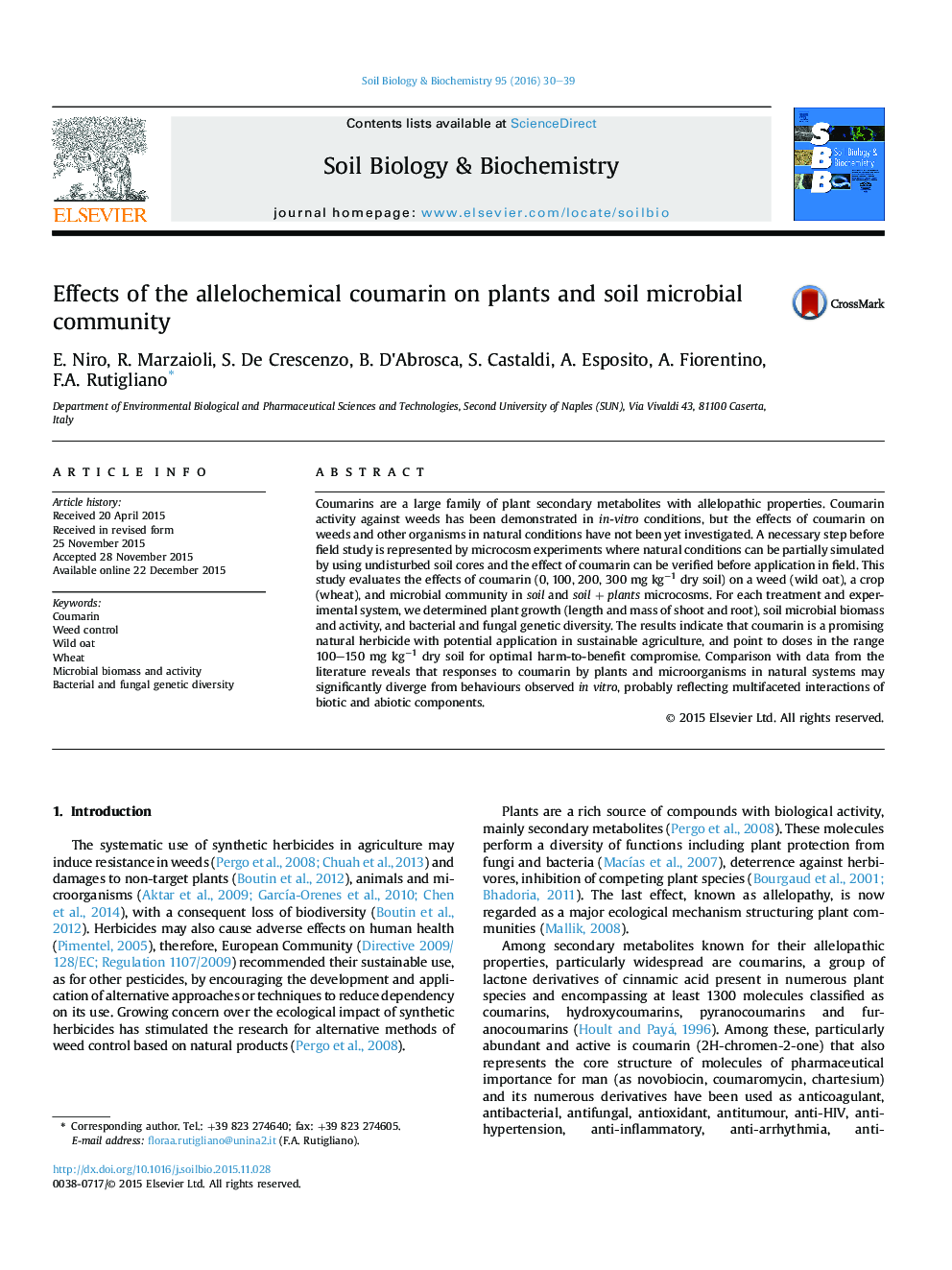| Article ID | Journal | Published Year | Pages | File Type |
|---|---|---|---|---|
| 2024262 | Soil Biology and Biochemistry | 2016 | 10 Pages |
•Coumarin effects on plants and microorganisms were assayed in soil microcosms.•Coumarin inhibited the growth of wild oat at all doses.•Adverse effects of coumarin were observed on wheat and fungi at high doses.•The presence of plants affected the response of fungal diversity to coumarin.•Coumarin enhanced soil respiration.
Coumarins are a large family of plant secondary metabolites with allelopathic properties. Coumarin activity against weeds has been demonstrated in in-vitro conditions, but the effects of coumarin on weeds and other organisms in natural conditions have not been yet investigated. A necessary step before field study is represented by microcosm experiments where natural conditions can be partially simulated by using undisturbed soil cores and the effect of coumarin can be verified before application in field. This study evaluates the effects of coumarin (0, 100, 200, 300 mg kg−1 dry soil) on a weed (wild oat), a crop (wheat), and microbial community in soil and soil + plants microcosms. For each treatment and experimental system, we determined plant growth (length and mass of shoot and root), soil microbial biomass and activity, and bacterial and fungal genetic diversity. The results indicate that coumarin is a promising natural herbicide with potential application in sustainable agriculture, and point to doses in the range 100–150 mg kg−1 dry soil for optimal harm-to-benefit compromise. Comparison with data from the literature reveals that responses to coumarin by plants and microorganisms in natural systems may significantly diverge from behaviours observed in vitro, probably reflecting multifaceted interactions of biotic and abiotic components.
Graphical abstractFigure optionsDownload full-size imageDownload as PowerPoint slide
